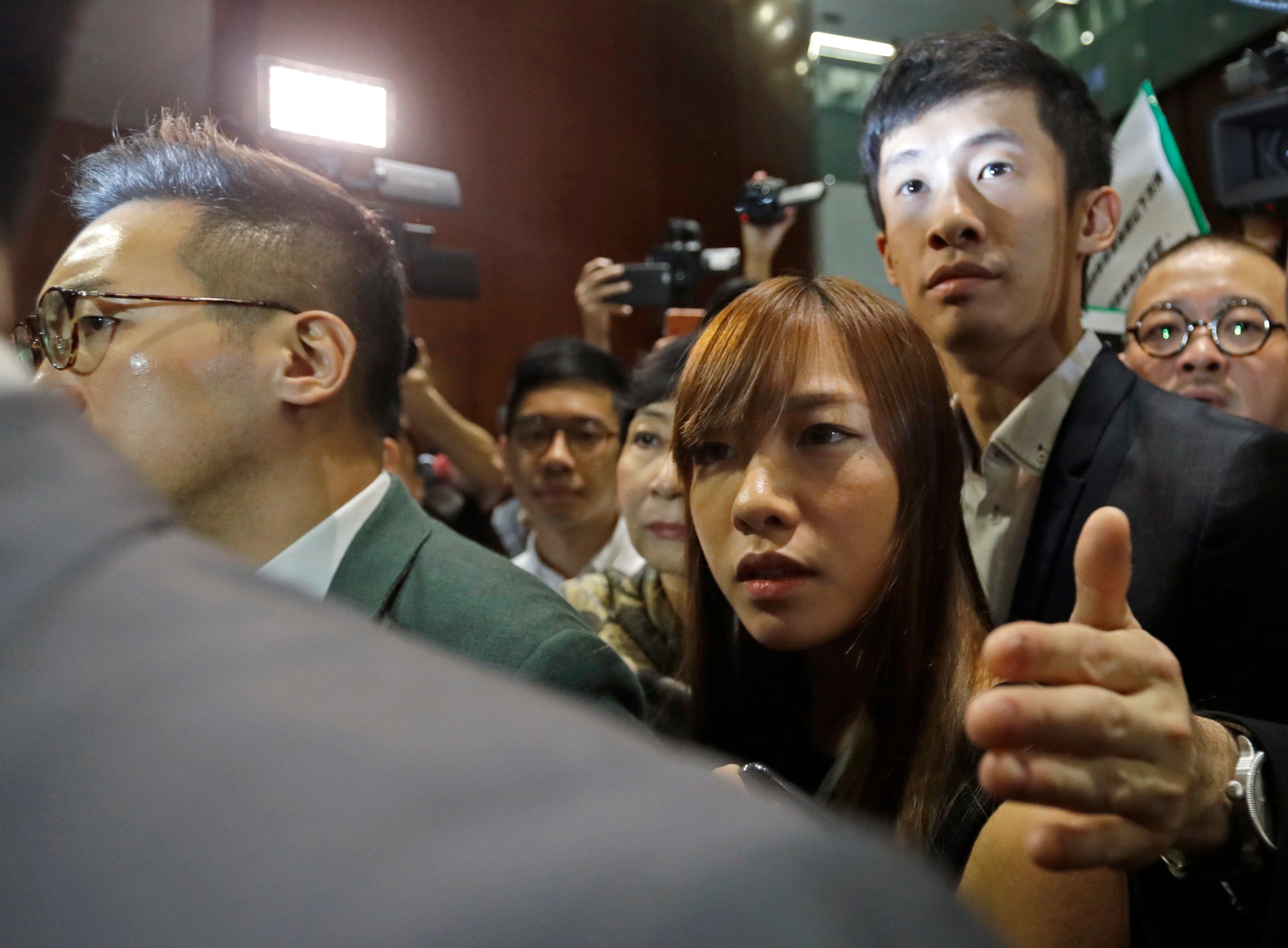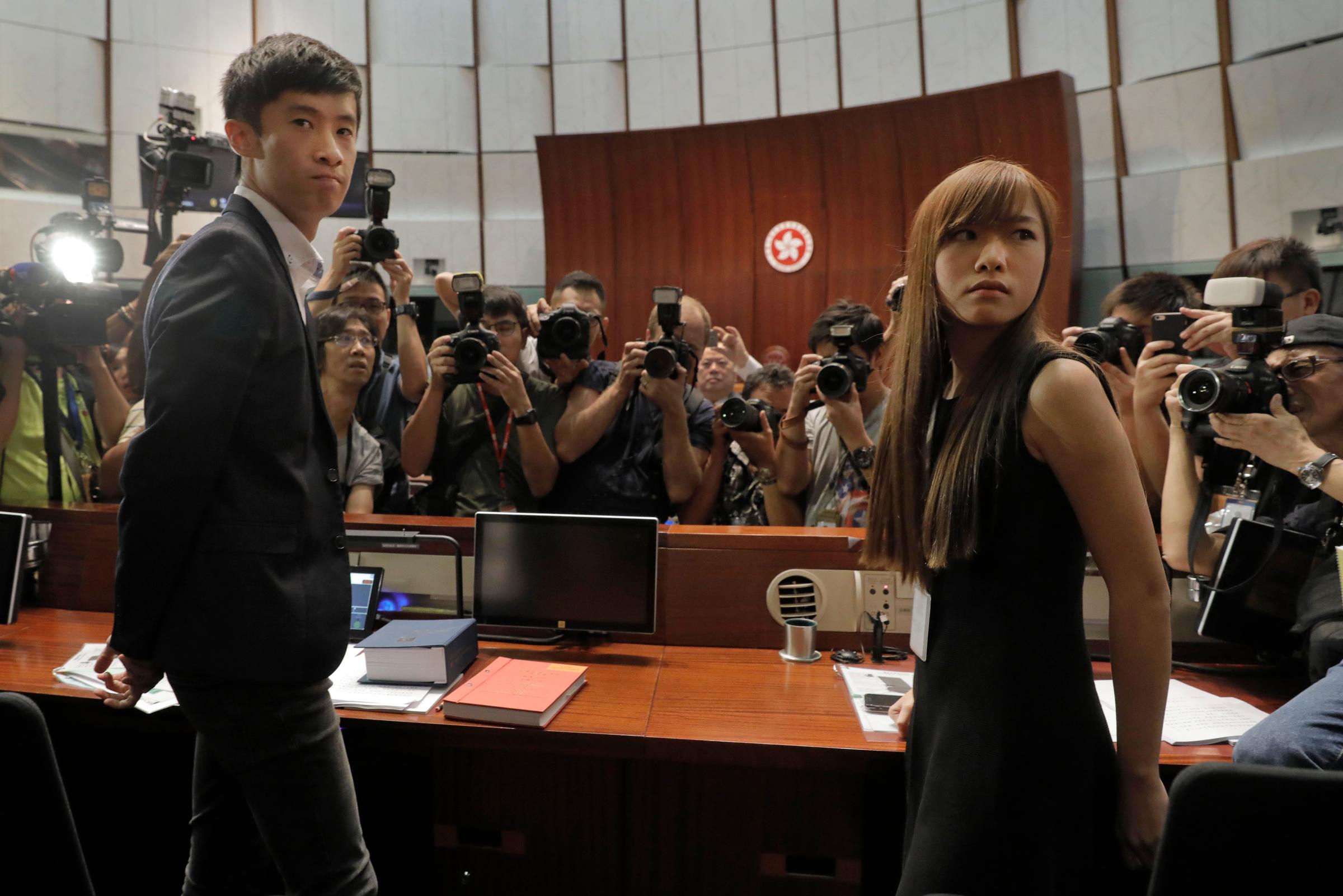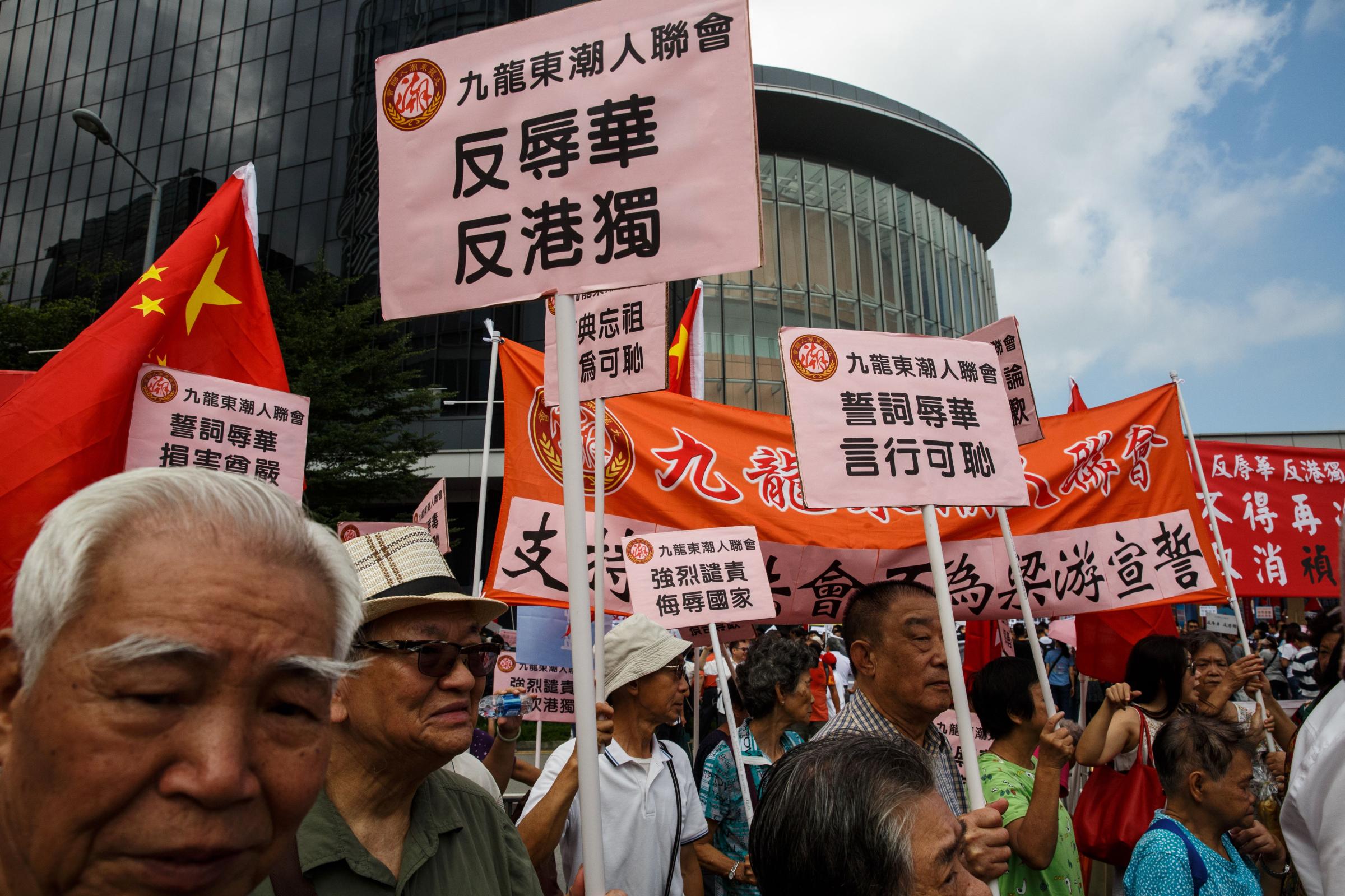
Chaotic scenes took place at Hong Kong’s legislature Wednesday morning local time, when democratic lawmakers ignored an order by its president barring two newly elected separatists from the chamber.
The Youngspiration party’s Yau Wai-ching, 25, and Sixtus “Baggio” Leung, 30, were both escorted into the legislature by a phalanx of pro-democracy legislators and briefly took their seats, refusing an instruction from president Andrew Leung (no relation) to leave. The president adjourned the meeting, declaring “Until my order is enforced, I won’t say a word.”
“Administer the oaths according to law!” pro-democracy legislators shouted, before the meeting was over. Many said the president should resign.
“Our action today proved that tyranny will only unite us,” Sixtus Leung told reporters. His party plans to hold a protest rally Wednesday evening.
The separatists’ act of defiance comes less than 24 hours after the president announced that the two would be barred from office until a court decides whether he has the power to readminister their oaths of allegiance — and whether the duo are still entitled to be legislators.
Yau and Sixtus Leung, both elected to the Legislative Council in September on a wave of anti-China sentiment, have been barred on the grounds that they have not properly taken their oaths of allegiance.
During their first attempt two weeks ago, the pair departed from the script to swear allegiance to the “Hong Kong Nation” instead of the “Hong Kong Special Administrative Region,” which is a semiautonomous part of China. They also unfurled a blue banner with the words “Hong Kong Is Not China” and pronounced China as “Shina” — the Japanese name for China viewed as highly derogatory following the wartime occupation.
Yau went even further by apparently calling the People’s Republic of China “the People’s Ref-cking of Shina.”

Their second attempt to take the oath was thwarted by a walkout of pro-China legislators, which led to an early adjournment of the meeting last week.
Outside the legislative building Wednesday, thousands of well-organized, tightly marshaled pro-China protesters staged a rally opposing the election of the separatists to the legislature and denouncing Hong Kong’s growing independence movement. Many loyalist protesters spoke in Mandarin — the lingua franca of mainland China — instead of the Cantonese language indigenous to Hong Kong.
A reporter from independent local news website Hong Kong Free Press was surrounded by between 20 and 30 protesters when he was reporting on the rally, and had his camera taken away at one point. His left hand was injured in the scuffle, and he found his camera’s memory card stolen when the camera was returned to him.

An unprecedented judicial review brought by the executive branch last Tuesday, and scheduled for hearing in November, has sent Hong Kong into uncharted waters, leading to doubts as to whether judicial independence and the separation of powers — both cherished pillars of the territory’s political system — can withstand increasing Chinese pressure.
Updated court documents as of this Tuesday show that, in addition to reviewing the speaker’s authority to readminister the oath, the government, led by Chief Executive Leung Chun-ying, also wants the court to declare Yau and Sixtus Leung’s seats vacant, arguing that the pair’s actions already constitute a refusal to be sworn in.
Speaking after the meeting, legislator Nathan Law of the Demosistō party, which advocates self-determination for Hong Kong, said, “What we are doing is not defending their words but defending Hongkongers’ electoral rights. We are here to protect the rule of law and systems that Hongkongers have worked so hard for.”
“Pro-Beijing legislators also have responsibility to defend Hong Kong’s system. Andrew Leung has largest responsibility,” added legislator Ip Kin-yuen.
More Must-Reads from TIME
- Cybersecurity Experts Are Sounding the Alarm on DOGE
- Meet the 2025 Women of the Year
- The Harsh Truth About Disability Inclusion
- Why Do More Young Adults Have Cancer?
- Colman Domingo Leads With Radical Love
- How to Get Better at Doing Things Alone
- Michelle Zauner Stares Down the Darkness
Contact us at letters@time.com